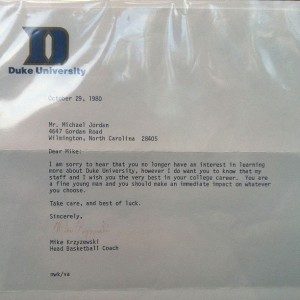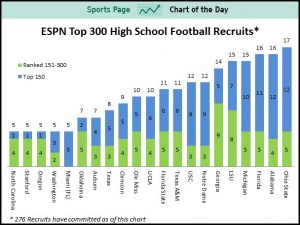Quick question: Would you rather have $50,000 salary or $100,000 salary? (Same job – no strings)
$100,000, every single time.
File this under why we are all very stupid – From Fast Company:
A few years ago, students at Harvard University were asked to make a seemingly straightforward choice: Which would they prefer, a job where they made $50,000 a year (option A) or one where they made $100,000 a year (option B)?
Seems like a no-brainer, right? But there was one catch. In option A, the students would get paid twice as much as others, who would only get $25,000. In option B, they would get paid half as much as others, who would get $200,000.
What did the majority of people choose?
Option A. They preferred to do better than others, even if it meant getting less for themselves. They chose the option that was worse in absolute terms but better in relative terms.
We (yes – all of us) are so stupid that we will logically decide to make less money for the simple fact that it would be more than those working with us versus making more but making less that others!? Compensation Managers take note! Social Comparison Theory is very real. If we think we are better off than others, we feel better about ourselves. If we feel worse off than others, we feel worse. Even if the reality is that we are better! We compare our own self by those who are around us, doing similar things. It’s one reason why your employees get so upset when they feel like they are paid less than someone else doing the same job – even though that other person might have more experience, more education, higher performance, etc. “I’m going the same job – I should make the same!”
The awesome part of this, is that it’s totally adaptable to HR programs and doing what we do better. Think about your dying referral program. You launched it – had a really cool new poster in the break room – spent weeks crafty catchy communications to go along with your very creative theme “Here We Grow Again!” – it was going to solve all of your recruiting problems – 6 weeks later it was dead – no referrals. One way to engage the concept of social comparison in a work environment is through gamification. Weather you like it or not, competition within your work environment will deliver more results, almost always in the short-term. Put up a scoreboard – and people will work to get their name up on it! Or their department, their function, etc. Individual or team – both work.
If you have a monthly contest on which department refers the most candidates that month – and you’re showing it visually and communicating it often – Accounting will want to be beat Marketing! And, Marketing will want to be Operations, and the end result will be more referrals. The key to gamification is keeping the game fresh. Having a new game each week, month, period, etc. is key to giving everyone another shot at winning, and keep them motivated to play the game. It’s not about the prize – it’s about the friendly competition and having fun with your competitions in your work environment. It’s also about kicking their peer’s butts! Sound like a lot of work? It might be to get started – but it’s more work to recruit talent on your own – then creating a great referral program and having your staff do the heavy lifting for you!


